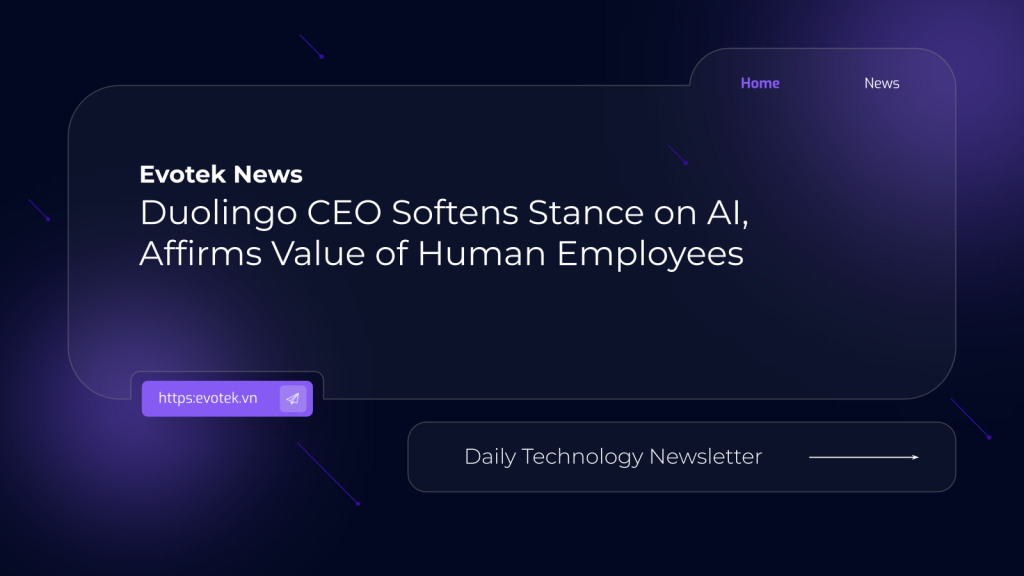After facing criticism for suggesting AI would replace human workers, Duolingo CEO Luis von Ahn has clarified his position, emphasizing that AI will serve as a tool to augment, not replace, the work of his employees.
Von Ahn’s initial comments, made just a week prior, hinted at a future where AI would significantly reduce the need for contractors. This sparked backlash from users and industry observers alike, prompting the CEO to address the concerns directly via a LinkedIn post.
“To be clear: I do not see AI as replacing what our employees do (we are in fact continuing to hire at the same speed as before),” von Ahn stated. “I see it as a tool to accelerate what we do, at the same or better level of quality. And the sooner we learn how to use it, and use it responsibly, the better off we will be in the long run.”
This statement marks a significant shift from the company’s earlier position, which included evaluating AI fluency in employee reviews and prioritizing automation before hiring new staff.
Duolingo’s revised stance aligns with a growing trend among tech companies like Klarna and Shopify, who have also walked back initial aggressive AI adoption plans in response to public and internal pushback. Klarna, for instance, after initially touting its AI chatbot’s superiority, has resumed hiring human employees due to quality concerns.
The Duolingo spokesperson reinforced this commitment, stating, “We’re still growing our team, and we’re training and developing our talent so they benefit from using AI…All AI content is created under the direction and guidance of our learning experts. We have rigorous quality standards in place to ensure that any content we publish is safe, accurate and aligned with the CEFR.”
This reversal highlights the complex relationship between AI and the workforce. While AI offers undeniable potential for increased efficiency and innovation, concerns remain about its impact on job security and the quality of work. A recent IBM survey revealed that a significant number of AI initiatives fail to deliver the promised return on investment, and a National Bureau of Economic Research study found limited impact on worker productivity and earnings in AI-exposed industries.
As companies navigate the integration of AI into their operations, Duolingo’s experience serves as a reminder of the importance of transparency, employee support, and a balanced approach that leverages AI’s strengths without undermining the value of human capital.
Key Takeaways:
- Duolingo CEO clarifies AI strategy, emphasizing augmentation over replacement of human employees.
- Follows similar backtracking from companies like Klarna and Shopify.
- Highlights the ongoing debate and challenges surrounding AI adoption in the workplace.
Related Reading:
- The Future of Work in the Age of AI
- Navigating the AI Revolution: A Guide for Businesses
- The Ethics of AI in Education

 日本語
日本語 한국어
한국어 Tiếng Việt
Tiếng Việt 简体中文
简体中文